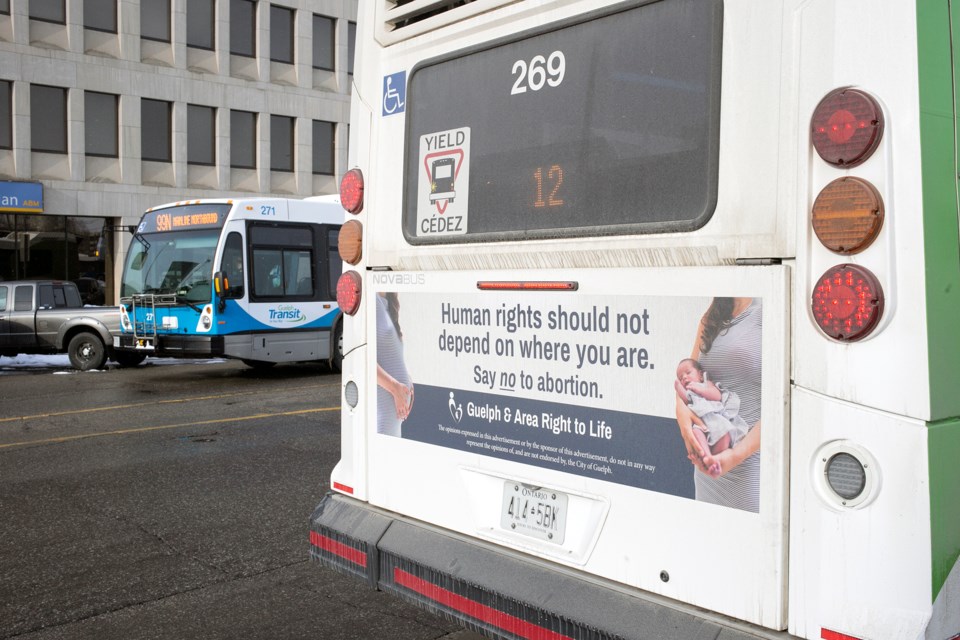The city’s decision to remove controversial anti-abortion bus advertisements in 2019 and 2020 is heading to court as Guelph & Area Right for Life has applied for a judicial review of the matter, with several national organizations seeking to join in.
At issue are three advertisements – one pulled in December of 2019 and two pulled in March of 2020.
“It’s vital in a democratic country that we have the right to peacefully express our views and to do so without fear of prosecution or otherwise,” said Jim Enos, Ontario president of the Christian Heritage Party of Canada (CHP), in an interview.
The CHP is asking for intervenor status in the case.
“I want the freedom for both sides. Abortion rights (people), they can put up their ads too, I wouldn’t oppose it.
“That’s what democracy is about. It’s about putting it out there and letting people decide based on the different perspectives. Everybody can make a decision for themselves.”
The Abortion Rights Coalition of Canada and Association for Reformed Political Action of Canada (ARPA) are also seeking intervenor status.
Attempts to reach Guelph & Area Right for Life for comment were unsuccessful.
In its application for a judicial review, the group claims the "unreasonable" decision to remove the ads infringes on the Charter of Rights and Freedoms.
“What we’re able to say at this time is simply that the city will be defending the applications for judicial review," said Tara Sprigg, the city’s general manager of corporate communications, in an email.
In January of 2020, following the removal of one ad, Sprigg told GuelphToday the city’s policy regarding advertising is largely based on the criteria for acceptance from Ad Standards.
“While the city doesn’t endorse any particular group, the rights of advertisers are protected and as such, unless it’s in direct contravention, we are in a position whereby in many cases we have to accept it,” she said.
Guelph & Area Right to Life had three advertisements running on the exterior of a total of 10 buses at the time. There were four different ads, but Sprigg said one was removed in December of 2019 because of a ruling by Ad Standards which said it was misleading.
“It’s a very important case dealing with the city’s charter obligations for freedom of expression,” said Tabitha Ewert, legal counsel for ARPA. “What we’re hoping to provide the court with is arguments about the role of non-governmental agencies, specifically in this case Ad Standards … which just provides advice about advertisements. It’s because of this advice that the ads were taken down.”
In its written decision, Ad Standards said the advertiser, Guelph & Area Right to Life, responded to the complaint stating the ad was an opinion piece and the complaint conflated the word “human” for “person.” Personhood is a legal concept, said Right to Life in the decision, while “human” is a biological one.
The council looked to the Criminal Code of Canada to assess the meaning of human, ruling it defines a child as human in a legal sense only after live birth. As such, the advertisement in question was found to be misleading.
“There is no doubt that the pre-born child, the baby in the womb, is a human being. There may be doubt what the legal status of that human being is,” said Ewert.
“We believe it is a human,” added Enos. “It has human parents. It has human DNA. It is alive. Therefore it is a human life.”
Ad Standards further said in its decision that the advertisement didn’t demean or disparage women who have had or are considering an abortion and the imagery in no way offended the standards of public decency.
